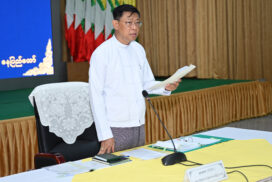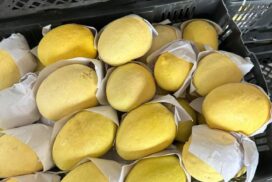The economic vitality of any nation is crucial for the effective functioning of the state machinery. The responsibility of bolstering the national economy lies not only with the government but also with the private sector, which must actively contribute to the growth by increasing export volumes and reducing imports. To achieve this, it becomes imperative to elevate the production of value-added goods for import substitution and local consumption.
The State economy witnessed a decline starting in late 2017, exacerbated by mismanagement in the economic sector and a disproportionate emphasis on imports without fostering domestic production. With the assumption of State responsibilities by the Tatmadaw, the State economy plummeted to a concerning -5.9 per cent in terms of economic development. The government has prioritized State economic promotion plans to rectify these economic setbacks and recover from the losses.
Through concerted efforts of the government and the citizens, the country managed to achieve a 2.4 per cent economic development amid the challenges posed by the COVID-19 pandemic and political crises during the 2021-22 financial year. Notably, despite facing political turmoil and economic sanctions, the State economy made significant progress, reaching 3.4 per cent in the 2022-23 FY and maintaining a 3.3 per cent development by December 2023 of the 2023-24 FY. Remarkably, all regions and states, except for Kachin, Kayah, and Rakhine states, demonstrated economic progress.
The parallel rise in economic progress and commodity prices can be attributed to a disparity between manufacturing and market demand coupled with an increase in production costs. To address this issue, businesspersons must source appropriate raw materials locally, thereby reducing manufacturing costs and subsequently lowering commodity prices.
The accumulation of fewer foreign currencies is closely tied to commodity trade. Instances of non-compliance with trading regulations and the mismanagement of non-trade incomes by some businesspersons result in diminished income flowing into the country, leading to a higher US$-kyat forex rate. Additionally, high prices of imported inputs contribute to the inflation of domestic commodity prices.
To effectively manage commodity prices and manufacturing, the government is poised to provide businesspersons with opportunities to produce goods at a minimal cost. This strategic move aims to control commodity prices somewhat, benefiting consumers. Furthermore, efforts are underway to reduce fuel and electricity prices, thus mitigating production charges. This dual approach is anticipated to spur the nation’s economic sector development while ensuring fair and reasonable commodity prices for the populace.
Focusing on robust State economy with equitable commodity prices
- February 11, 2024
- 164














